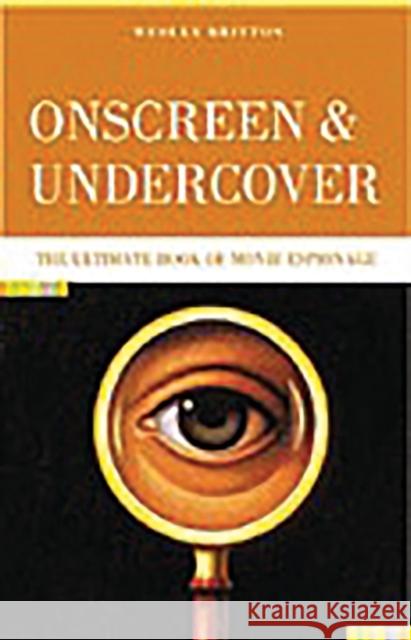Onscreen and Undercover: The Ultimate Book of Movie Espionage » książka
Onscreen and Undercover: The Ultimate Book of Movie Espionage
ISBN-13: 9780275992811 / Angielski / Twarda / 2006 / 232 str.
Wes Britton's "Spy Television" (2004) was an overview of espionage on the small screen from 1951 to 2002. His "Beyond Bond: Spies in Fiction and Film" (2004) wove spy literature, movies, radio, comics, and other popular media together with what the public knew about actual espionage to show the interrelationships between genres and approaches in the past century. "Onscreen and Undercover," the last book in Britton's Spy Trilogy, provides a history of spies on the large screen, with an emphasis on the stories these films present.
Since the days of the silent documentary short, spying has been a staple of the movie business. It has been the subject of thrillers, melodramas, political films, romances, and endless parodies as well. But despite the developing mistrust of the spy as a figure of hope and good works, the variable relationship between real spying and screen spying over the past 100 years sheds light on how we live, what we fear, who we admire, and what we want our culture and our world to become.
"Onscreen and Undercover" describes now forgotten trends, traces surprising themes, and spotlights the major contributions of directors, actors, and other American and English artists. The focus is on movies, on and off camera.
In a 1989 National Public Radio interview, famed author John Le Carre said a spy must be entertaining. Spies have to interest potential sources, and be able to draw people in to succeed in recruiting informants. In that spirit, Wes Britton now offers "Onscreen and Undercover.""











